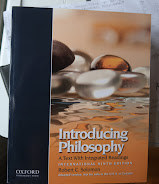I have been on a weekly Philosophy/Politics course for the last couple of months and the topic we were taught and able to discuss this week was 'Populism'.
Ahead of the session I did a little independent research of my own, finding that the concept was something that had surfaced in the USA pre 20th Century and its reoccurrence was a sign of 'elites' becoming disconnected from the populace .
Cas Mudde gives (I think) a good contextualisation here.
Populism at large currently seems to be mainly of the 'Right' variety but it is not always the case and some have labelled Bernie Sanders as a Populist (although this is disputed as much of what he has said is factual).
The two party system in the USA is it seems is prone to a Populist demagogue becoming leader of either party - Donald Trump was by many accounts an embodiment of Populism dismissing other leaders as corrupt and identifying himself with the populace.
Even after an attempted Coup in Washington Trump retains support from many in his (Republican) party and the message that he sends out of being undermined by Liberals, East and West coast elites as well as the Media - this theme continues to resonate with those who consider they are dispossessed and side-lined.
If you were seeking to replicate a 'Trump' type Government in the UK Boris Johnson would seem to be a good vehicle for hijacking the Conservative party, much of what he has done to the UK is far from traditional Conservative and so far it appears his leadership has been Anti-business but perhaps pro Capital?
In the UK corruption is perceived to be on the rise and debate stifled (
contracts are awarded to those linked to the ruling party without open tendering processes) .
Much of what the UK news has been reporting on the Government has been giving a positive spin even though it has soon turned out that what they have said are untruths and lies.
Although there are in existence strong 'Codes of Conduct' for government ministers the present situation in Westminster (Once known as 'The Mother of all Parliaments) seems to be showing that these are not enforceable (or rather the expectation is that the British PM is the enforcer and if he chooses not to enforce them - or breaks them himself then there are no consequences to him), other Ministers could I suppose take a stand ( perhaps Michael Gove for example) but it seems unlikely in the current environment.
The Democratic countries of the west (if we can describe them this way) rely on institutions beyond Government to ensure dissent is allowed , the rule of law ensuring a degree of 'fairness' and permitting exchange of views on various aspect of life.
I hope that it in a few months the British public become better informed and trust is rebuilt!



































